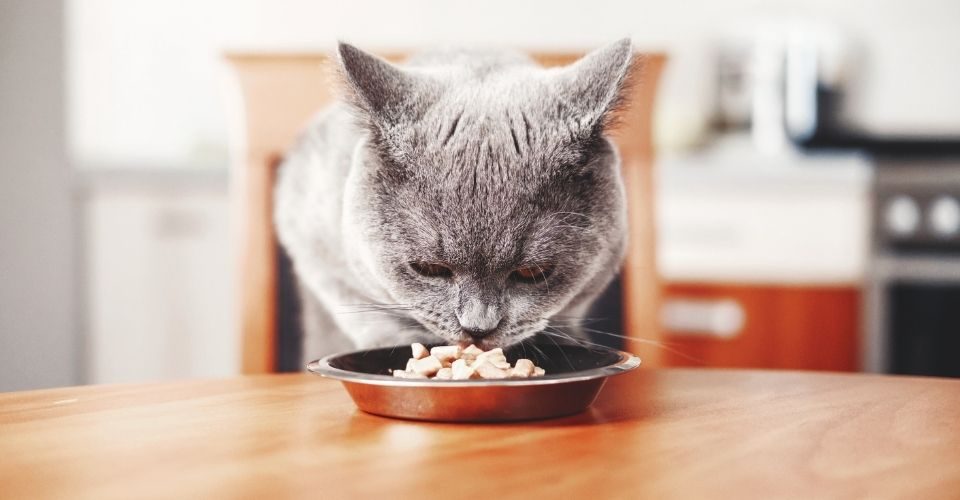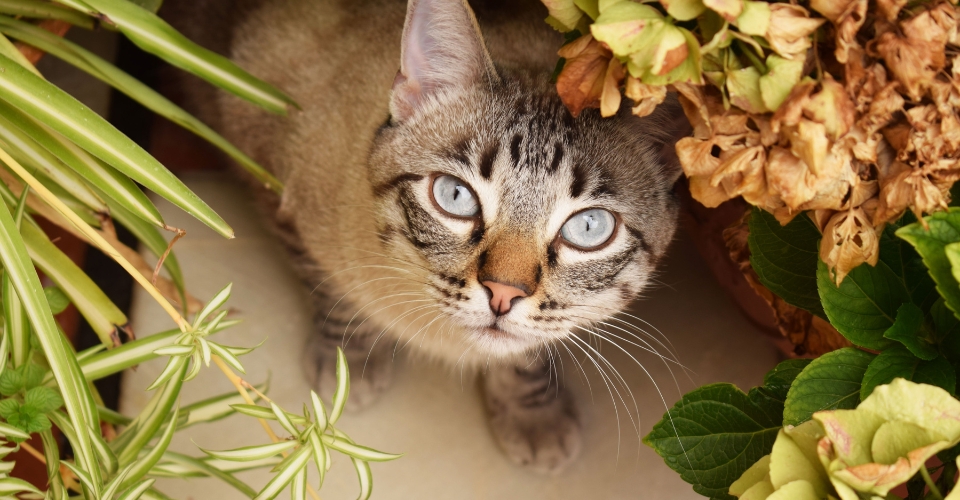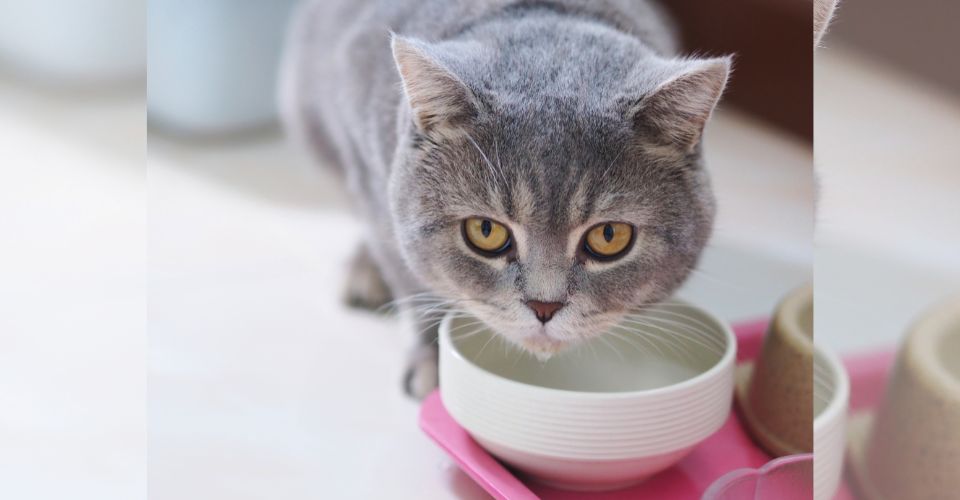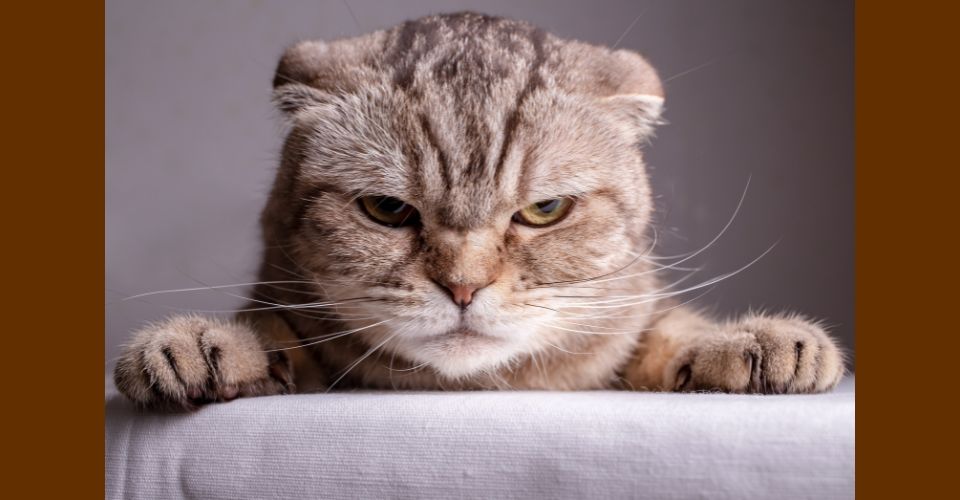Has your cat been consistently vomiting and coughing, suffering from diarrhea? Has your kitty been spewing hairballs? Do you think that your cat has a sensitive stomach? If you are nodding your head, you will probably be looking to transition your furball to the best cat food for sensitive stomach.
No doubt, switching from the usual cat food to cat food for sensitive stomach can ease many of your cat’s gastrointestinal issues but do not change your cat’s diet without discussing it with your vet.
If you are worried about your cat’s sensitive stomach and have been looking for the best cat food for sensitive stomach, stick around. We are going to list the symptoms of a cat with a sensitive stomach so that you can make sure that it is just the sensitive stomach and that there are no underlying feline health issues.
In the end, we list the 5 best cat food for sensitive stomach available in the market.
Symptoms That Your Cat Has Sensitive Stomach
Cats are stoic—they do not let others, including their loving cat owners, get a hint about their sickness and vulnerabilities. But if you pay close attention, you’ll find out that your cat is exhibiting certain subtle signs of sickness.
As far as a cat having a sensitive stomach is concerned, you need to familiarize yourself with the following signs:
- Frequent vomiting
- Hairballs
- Consistent cough
- Changes in stool (diarrhea/constipation)
- Increased thirst
- Weight loss
- Poor coat health
- Skin problems (skin itching and scratching)
If your cat has been exhibiting these symptoms, you should get concerned and take your kitty for a vet examination to rule out the possibility of any underlying sickness. Coughing and hairball can be the symptoms of other feline health issues like feline asthma. Excessive itching and scratching can be a symptom of fleas on kittens. Therefore, it is best that you take your cat to a vet before making any decision about her diet.
The Best Cat Food for Sensitive Stomach
You must be wanting to switch to the best cat food for sensitive stomach available out there as soon as possible but with so many cat food brands available, you might find it a bit overwhelming to choose one of the best cat food for a sensitive stomach.
That’s where we come in. We have picked some of the best cat food for sensitive stomachs that will not only ease your cat’s gastrointestinal health issues but may also help to get rid of them altogether.
Take a look at the key features and pros and cons of the below cat food brands and make an educated purchase.
1. Blue Buffalo Sensitive Stomach Cat Food

Key Features
Crude Protein (Min): 32.0%
Crude Fat (Min): 16.0%
Crude Fiber (Max): 3.5%
First Ingredient: Real Deboned Chicken
Item Form: Dry
Flavor: Chicken
Suitable for: All breeds size
Best Sellers Rank: #21 in Dry Cat Food
| What’s Best About It |
|---|
|
Features real deboned chicken meat as its first ingredient, providing high-quality proteins It not only contains prebiotics that helps cats in digestion and improves nutrient absorption but also contains Omega 3 and 6 fatty acids that improve cat coat health No chemical preservatives or artificial flavors that are harmful to our pets’ health The formula contains Blue’s exclusive LifeSource Bits—a fine blend of vitamins, minerals, and antioxidants—carefully selected by seasoned cat nutritionists and veterinarians Besides chicken, it also contains whole grains, veggies, and fruits They are compact by design and climate pledge friendly—helping to preserve the natural world by reducing their carbon emissions. |
| Flaws But Not the Deal Breakers |
|---|
|
Your cat may take some time in adjusting to Blue Buffalo Sensitive Stomach cat food Transitioning may take around 14 days—start by mixing only 25% of Blue cat food in your cat’s old food and then gradually increase the Blue’s proportion over the next two weeks |
2. Purina One Sensitive Skin and Stomach Adult Dry Cat Food

Key Features
Crude Protein (Min): 34.0%
Crude Fat (Min): 14.0%
Crude Fiber (Max): 4.0%
First Ingredient: Real Turkey
Item Form: Kibble, Crunchy
Flavor: Turkey
Suitable for: All breeds size
Best Sellers Rank: #6 in Dry Cat Food
| What’s Best About It |
|---|
|
Trusted brand—Purina One is a vet-recommended cat food for sensitive stomach This is easily digestible for cats with a sensitive digestive system In addition to fulfilling the nutritional requirements of cats, this formula also nourishes cat skin and help them maintain a healthy and shiny coat Enriched with antioxidants that help improve the immune system of our feline friends The crunchy texture of the kibbles is good for the cat’s dental health—it reduces plaque buildup It is free of all sorts of artificial flavors and preservatives |
| Flaws But Not the Deal Breakers |
|---|
|
Contains whole grain corn and corn gluten meal which seems not to fit with some cats Some cats experience gas issues when they are on this cat food. |
3. Iams Sensitive Stomach Cat Food, Chicken & Turkey

Key Features
Crude Protein (Min): 33%
Crude Fat (Min): 14.0%
Crude Fiber (Max): 3.0%
First Ingredient: Real Turkey
Item Form: Dry
Flavor: Turkey
Suitable for: All breeds size
Best Sellers Rank: #37 in Dry Cat Food
| What’s Best About It |
|---|
|
Omega 6 and 3 fatty acids present in the formula nourish our cats’ skin and help them maintain a shiny coat It’s enriched with antioxidants and prebiotics that strengthen the immunity of our cats Healthy proteins sourced from real turkey helps cats maintain strong muscles Easy digestion—a blend of fibers, prebiotics, and beet up pulp improves the nutrient absorption It’s free of artificial preservatives, synthetic dyes, and wheat |
| Flaws But Not the Deal Breakers |
|---|
|
Takes about 4 days for most cats to adjust to the transition With this cat food for sensitive stomach, the cat must have access to fresh water all the time While the overall rating of this cat food is 4.7, when it comes to scent it’s 3.0. |
4. Hills Sensitive Stomach Cat Food
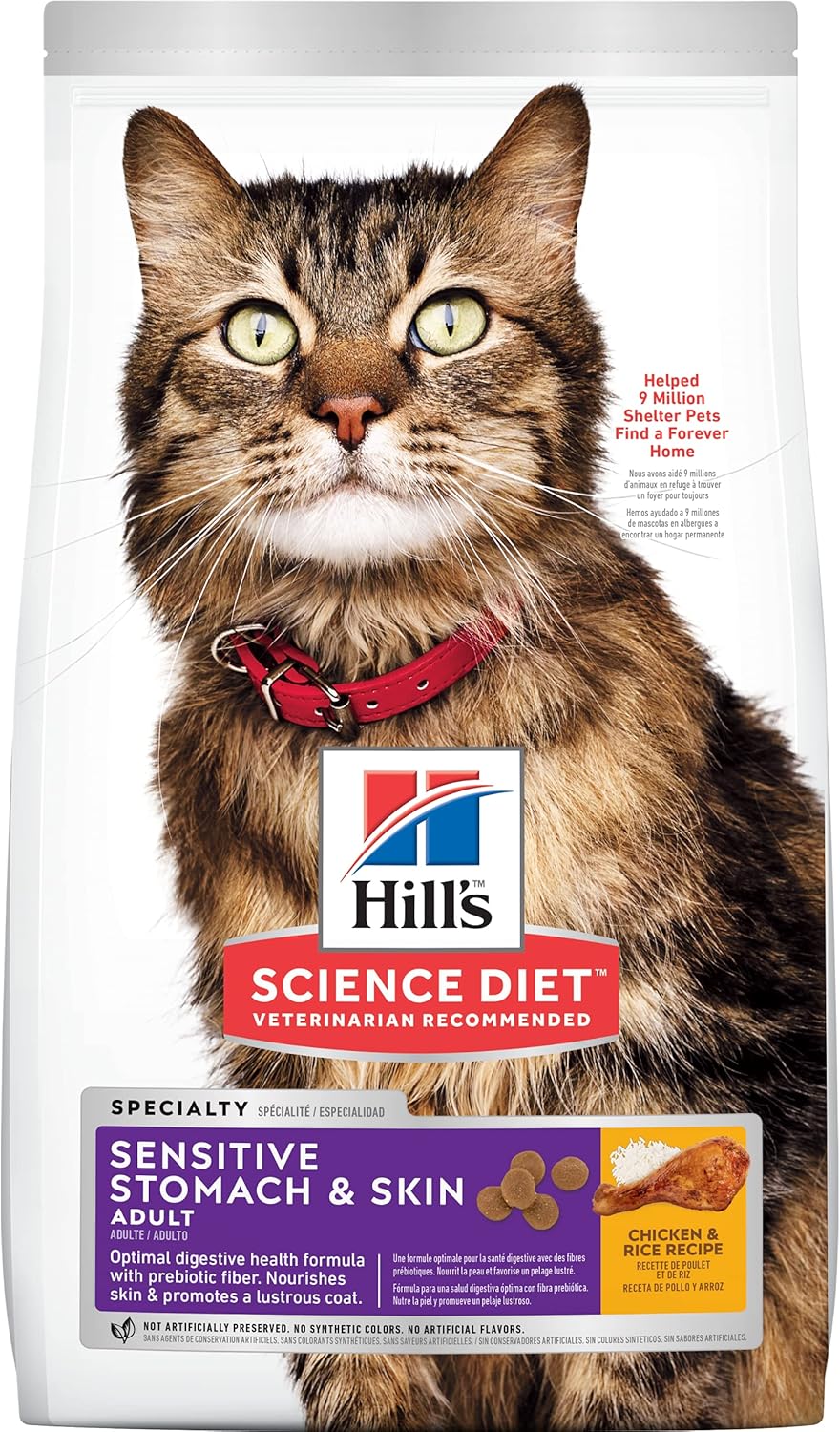
Key Features
Crude Protein (Min): 29%
Crude Fat (Min): 17%
Crude Fiber (Max): 3%
First Ingredient: Chicken
Item Form: Dry
Suitable for: All breeds size
Best Sellers Rank: #9 in Dry Cat Food
| What’s Best About It |
|---|
|
Helps cats fight stomach issues and skin allergies Prebiotic fibers present in it helps cats Features easy to digest ingredients, making our cats to digest food easily Enriched with vitamin E and Omega 6 that help cats maintain healthy skin and shining furry coat US #1 veterinarian-recommended cat food for sensitive stomach Antioxidants present in the formula bolster our cats immune systems and also improve their heart health Free of food additives, artificial chemicals, and preservatives |
| Flaws But Not the Deal Breakers |
|---|
|
High caloric content makes it a bad choice for obese cats with sensitive stomach Not a good choice for gluten intolerant cats Some cats do not like its taste |
5. Royal Canin Sensitive Digestion for Adult Cats

Key Features
Crude Protein (Min): 33.0%
Crude Fat (Min): 20.0%
Crude Fiber (Max): 3.1%
First Ingredient: Chicken
Item Form: Dry
Suitable for: Small breeds
Best Sellers Rank: #132 in Dry Cat Food
| What’s Best About It |
|---|
|
Featuring highly digestible proteins and prebiotics, this cat food helps cats maintain optimal stomach health Unique kibble shapes offer maximum appetite appeal to our cats Higher energy density—loaded with useful proteins, healthy fats, antioxidants, and vitamins It is listed as good for small breeds but reviews suggest that Maine Coon—a large cat breed—seems to love this cat food more than others |
| Flaws But Not the Deal Breakers |
|---|
|
Not good for gluten-intolerant cats as it contains corn gluten meals as a third ingredient The full transition will take up to 7 days Either offer kibbles after moistening with water or make sure cats have access to fresh water at all times |
Things to Consider When Buying Cat Food For Sensitive Cat
If you notice that your cat is not eating her food correctly, or if there are issues after she eats, she likely has a sensitive stomach. While selecting cat food for digestive issues, make sure that the cat food you choose is full of healthy nutrients. Let’s have a look at things you should consider when buying the best cat food for a sensitive stomach.
Fillers
Artificial colors, flavors, and preservatives should be avoided. They are often the source of food sensitivities, and they are also unnecessary if the other components are genuine and of good quality.
Rich in Protein
The cat food you will choose for your cat should be rich in protein. But due to a sensitive stomach, she can’t digest chicken or fish. So you should select cat food with turkey or lamb as a source of protein. These can be easily digested as compared to chicken and fish.
The Texture
Cats with sensitive stomachs consider pate texture food rather than chunks or gravy. When choosing easy-to-digest cat food, prefer pate texture as it gets digested faster.
Grains
Make sure that the cat food is grain-free. However, some grains are not suitable for your cat’s sensitive stomach. Buy from a trusted brand and check all the ingredients before choosing the food.
FAQ’s
What Do You Mean by Cat Food for Sensitive Stomach?
Cat meals for sensitive stomachs can have a variety of characteristics. Some are designed with easily digested ingredients, while others are devoid of common allergens. It’s best to have a single source of high-quality animal protein. Look for omega-3 fatty acids, which are anti-inflammatory lipids. Carbohydrates should not be the main component of a diet for cats with sensitive stomachs—or any cat food, for that matter. A probiotic or prebiotic-rich meal will aid in the maintenance of a healthy gut bacterial balance, which is essential for digestive health.
How Can a Cat Food for Sensitive Stomachs Help?
Cat food for sensitive stomachs is carefully developed to minimize the likelihood of unpleasant reactions and consequent vomiting.
Always choose a reputable brand while choosing food for your pets, whether they have sensitive stomachs or otherwise. Well-known brands typically avoid using ingredients that lead to gastrointestinal discomfort.

